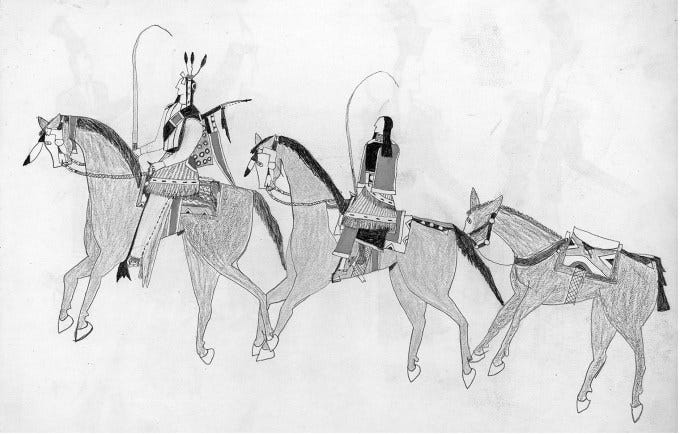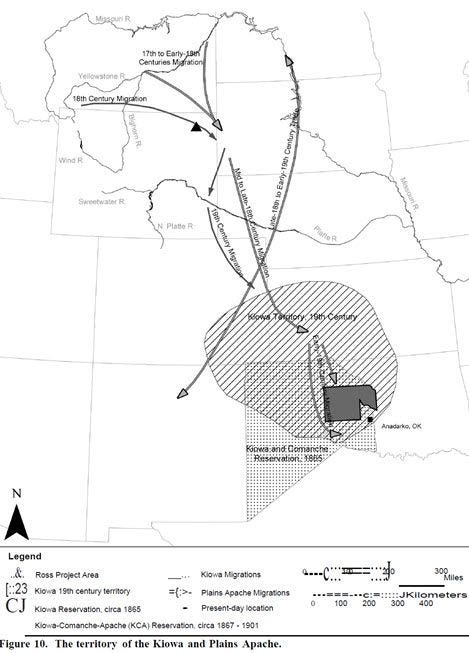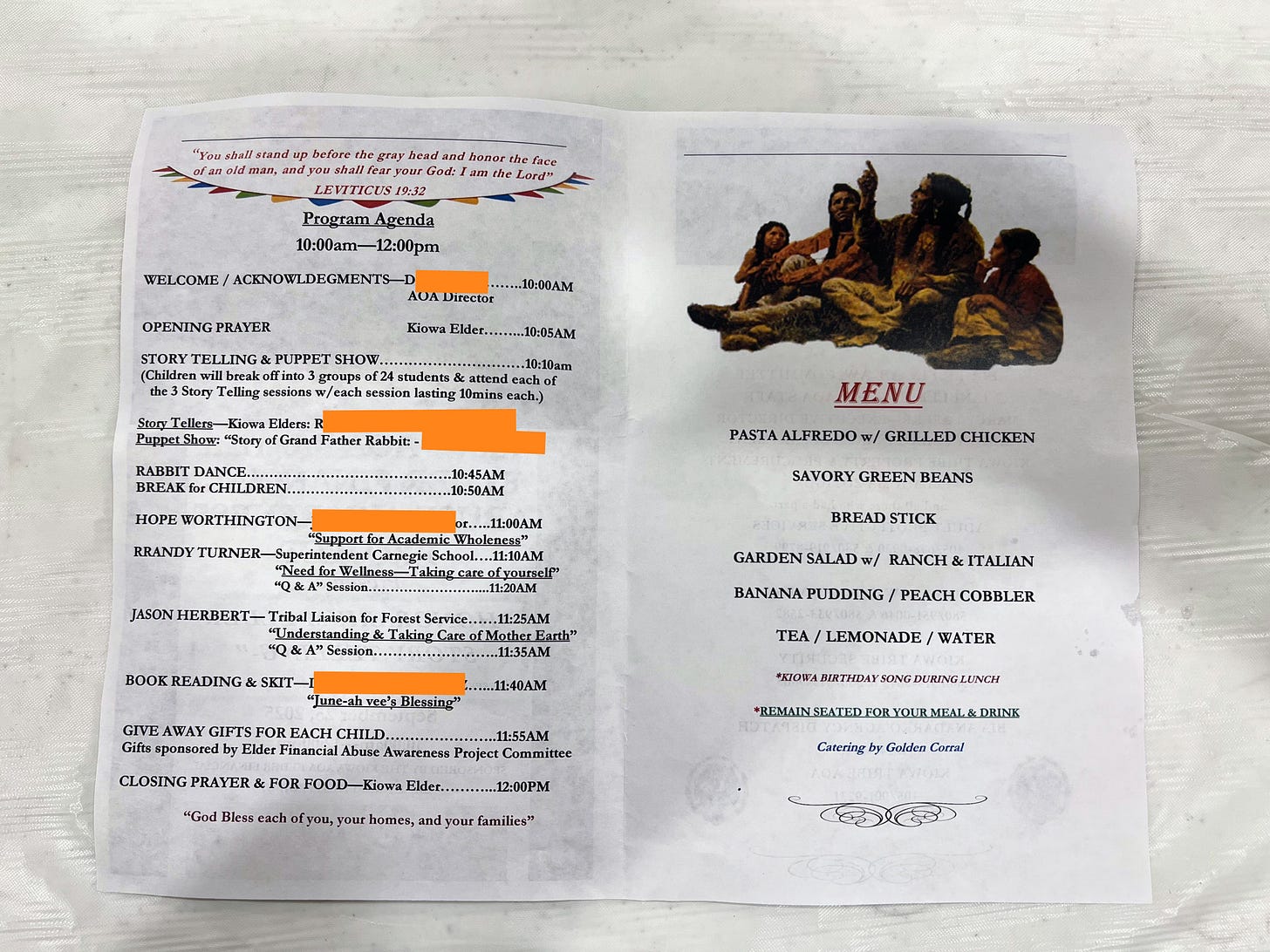One of my favorite things I’ve been doing lately is learning more and more about Kiowa history.1 My courses in graduate school tended to focus on Indigenous and environmental history but it is said that on your way to a Ph.D. you learn more and more about less and less until you know a whole lot about nothing. That was sort of the case for me as I increasingly focused on Southeastern American Indian history while maintaining a general understanding of regional histories, though far from anything specific.
The Kiowa Tribe is among several that I get to work with out here, and the folks have been so inviting to me. I have tried to repay that trust by learning as much as I can since I’ve been out here. Fortunately, Kiowa history is often intertwined with others I’ve gotten to know including Cheyenne, Arapaho, Ute, and Comanche, who I’ll be visiting with on Friday and Saturday.
If you’re not familiar with Kiowa history, let me give you a quick rundown as I understand it. First of all, Kiowa history is, in historical terms, really freaking cool. The Kiowa people hail from the Northern Plains, into present-day Montana and Canada. They have a longstanding relationship with the Crow, from whom they are said to have received horses around the turn of the 18th century. Eventually, the Kiowa moved down onto the grasslands of the Great Plains of present-day Colorado, Kansas, Oklahoma, Texas, and New Mexico, where they hunted bison and raised their families.
Remember those horses they got from the Crow? Well, Kiowa folks were among the great horse tribes of the Plains, and I’ve seen reports that said they at one time possessed the greatest herds of anyone. Atop those horses, Kiowa men were master hunters and warriors. They quickly allied with the Kiowa-Apache, and later, the Comanche and Cheyenne and Arapaho to dominate the Southern Plains.

You probably know what happened next. Eventually, the United States made war on the Kiowa, forcing them onto a reservation in 1867. That reservation did not last long—the Dawes Act of 1887 broke up most of the reservations in Oklahoma so that “surplus” land could be sold to white speculators. After that, boarding schools.
But Kiowas survived those tragedies. And they survived the Termination Era of the 1950s to remain a federally-recognized sovereign nation whose Tribal government sits in Carnegie, Oklahoma. And we work together so that everyone can enjoy the forests and grasslands the Kiowa people call home.
Today was my second visit to the Tribe out here and I was eager to learn more. I had been invited to talk about the Forest Service and what tribal liaisons do. But more than that, I wanted to just hang around, show my respect for the community, and say hi to new friends. And I got to do all that. I was able to talk to a few elders and witness some kids learning stories in a puppet show (Ok I also watched the puppet show). Later, my friend Diana drove me around so I could see some important places to Tribal Members.
I’m a historian. I’m always taking pictures. I like to document stuff. And in my office you’ll see pictures of me doing work for the Seminoles or my coffee mugs with Tribal seals on them. I’m proud of the work I do. I like it. But I didn’t really take any pictures today. I was too in the moment. But I looked down and saw something really cool. This:
What may seem like a simple lunch program struck me because there it was: my name on a Kiowa document. Right there in black and white it told me I was a welcome guest here. And that I was doing the work. How cool is that?
I’m hoping to see more folks this weekend and I’m already planning my next visit out here. It’s a special place.
For more reading on Kiowa history:
Jenny Tone-Pah-Hote, Crafting an Indigenous Nation: Kiowa Expressive Culture in the Progressive Era (use code 01HATM30 for 30% off—I don’t get anything but it’s a nice discount for my readers)
Kathleen DuVal, Native Nations: A Millennium in North America
Mildred P. Mayhall, The Kiowas
N. Scott Momaday, The Way to Rainy Mountain, 50th Anniversary Edition
-Jason
These thoughts are mine alone and sure as heck don’t represent any government or anyone else. Thanks.




Sounds like it was an energizing time! I just wish there could’ve been more traditional Kiawa food on the menu for lunch.
A phenomenal opportunity!